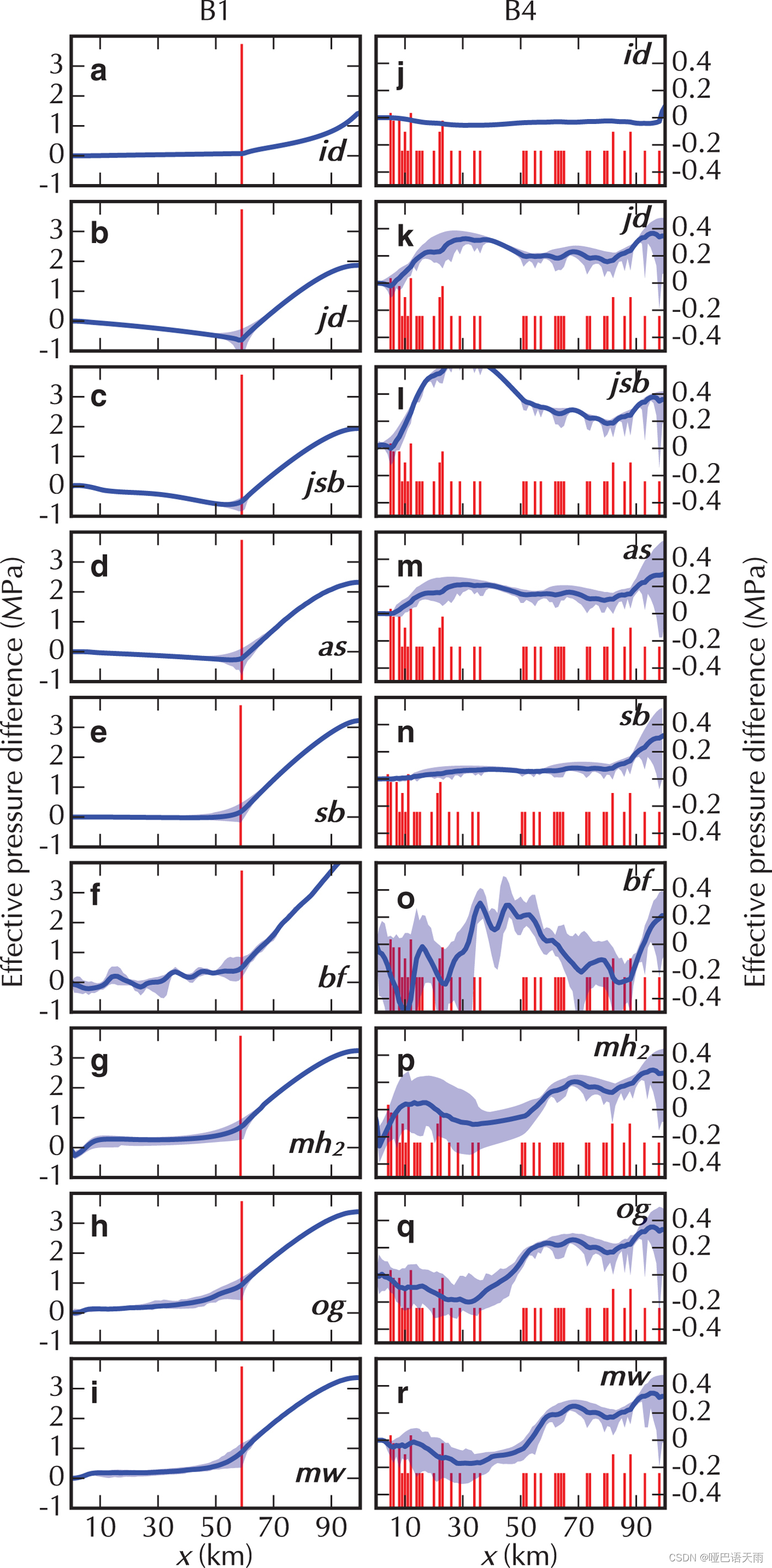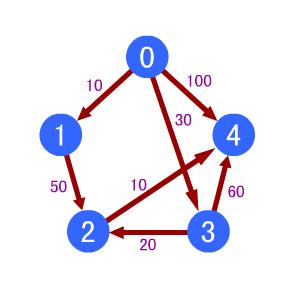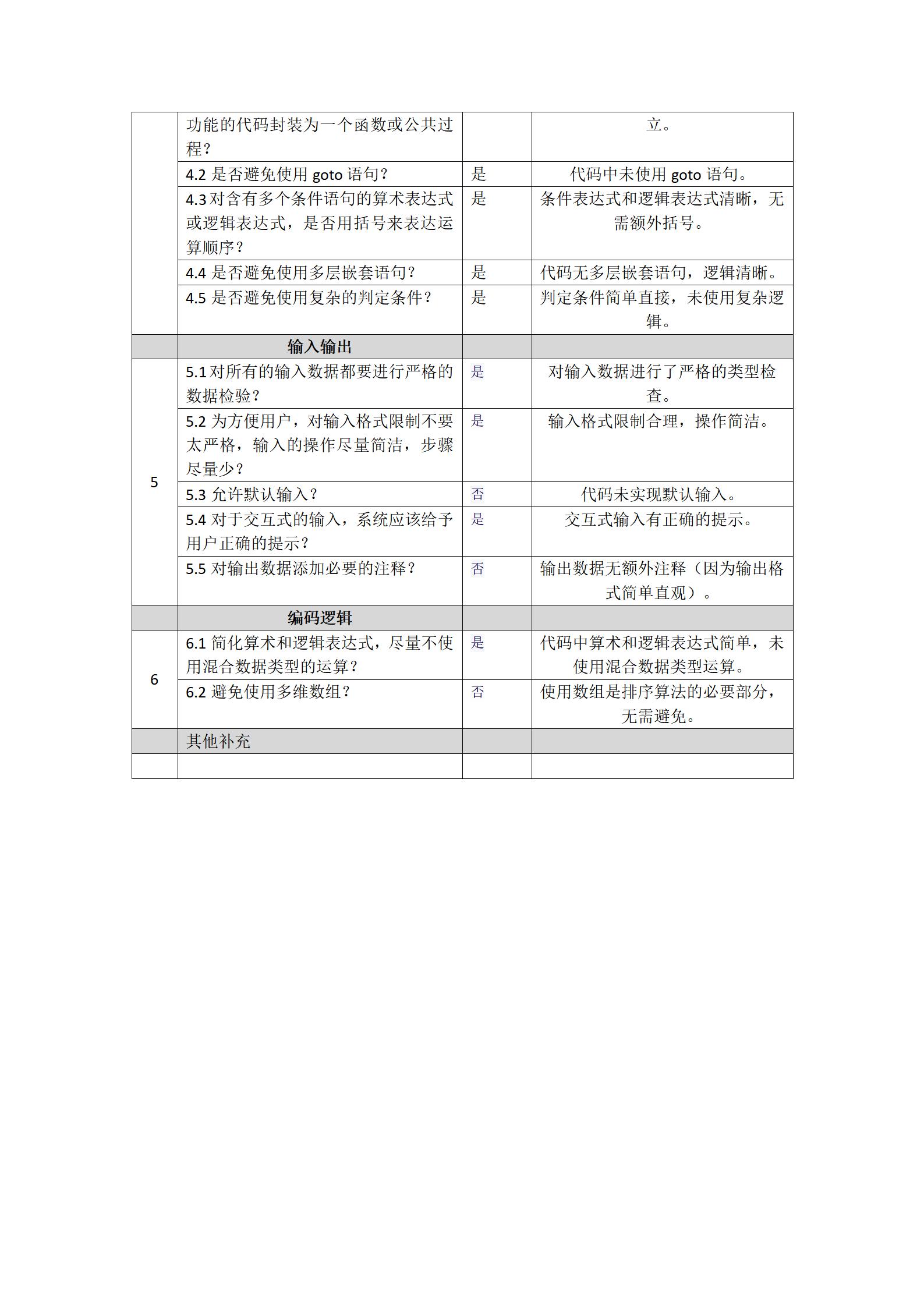SHMIP(冰下水文模型比较计划)是一个致力于解决冰下水文多种理论方法问题的项目。该计划通过构建一系列综合模拟实验,并对运行这些模拟的各参与模型的结果进行比较,以达到其目标。这将有助于潜在的模型用户更加明智地为特定应用选择合适的模型。同时,对于模型开发人员来说,这将有助于他们评估哪些地方需要进一步的模型开发,并提供一组参考模型,以便与未来的模型进行比较。
该计划设计了一系列的实验,这些实验围绕着六个主题(标记为A到F)进行相互比较。每个主题下的实验由四到六个数值模拟(不同的变量参数)组成,文章将这些模拟称为‘run’。所有的设置和详细说明都可以在https://shmip.bitbucket.io/找到,同时也包含在补充材料中。这些实验的目的是允许各种模型参与到相互比较中,并在各种场景下进行测试。文章的设计允许13个模型参与到部分或全部的实验中,包括分布式补给(A、E)、竖井输入的稳态条件(B),以及瞬态模拟(C、D、F)。在整个比较过程中,有效压力作为冰动力学的主要耦合因素,是评估的重点。
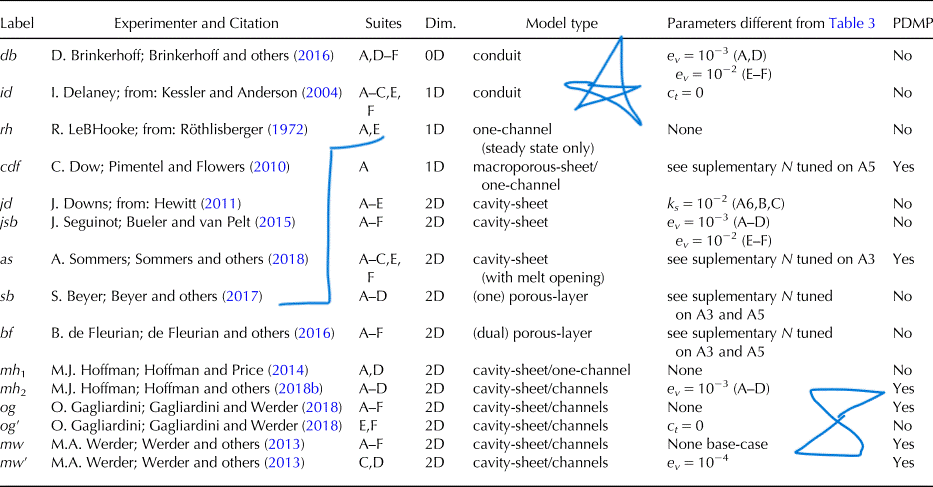

相互比较使用两种不同的合成冰川地形。第一个用于实验A至D,是陆地终止冰盖边缘的合成表示;第二种地形用于实验E和F,是受美国AK板凳冰川启发的合成山谷冰川几何形状,冰川长6公里,宽1公里,终点和冰川头之间的海拔差为600米。
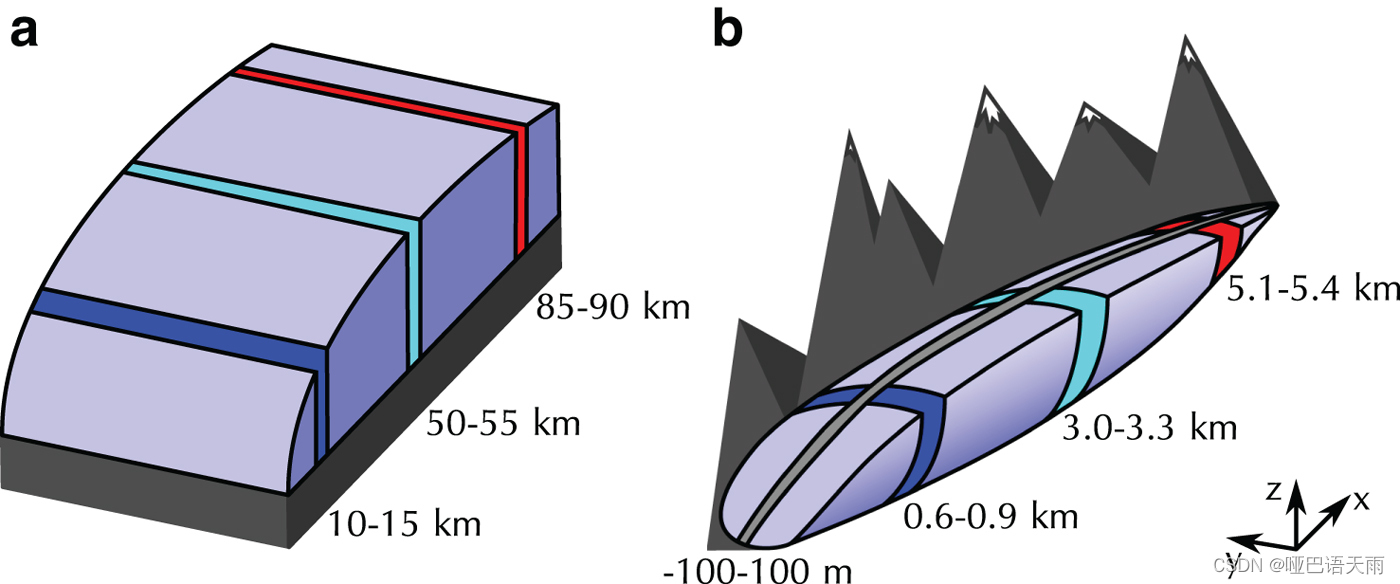
总要结论:
压力变化特征:All models show a steep increase of effective pressure over the initial 10 km. This pressure distribution is driven by the ice-sheet geometry and the terminus boundary conditions. Farther upglacier, all of the model outputs follow the widely acknowledged rule that, in a steady state, a higher discharge leads to decreasing N if the system is inefficient and to increasing N if the system is efficient. This can be observed in below both as the discharge increases with proximity to the terminus, and as the specified recharge increases (from A1 to A6)
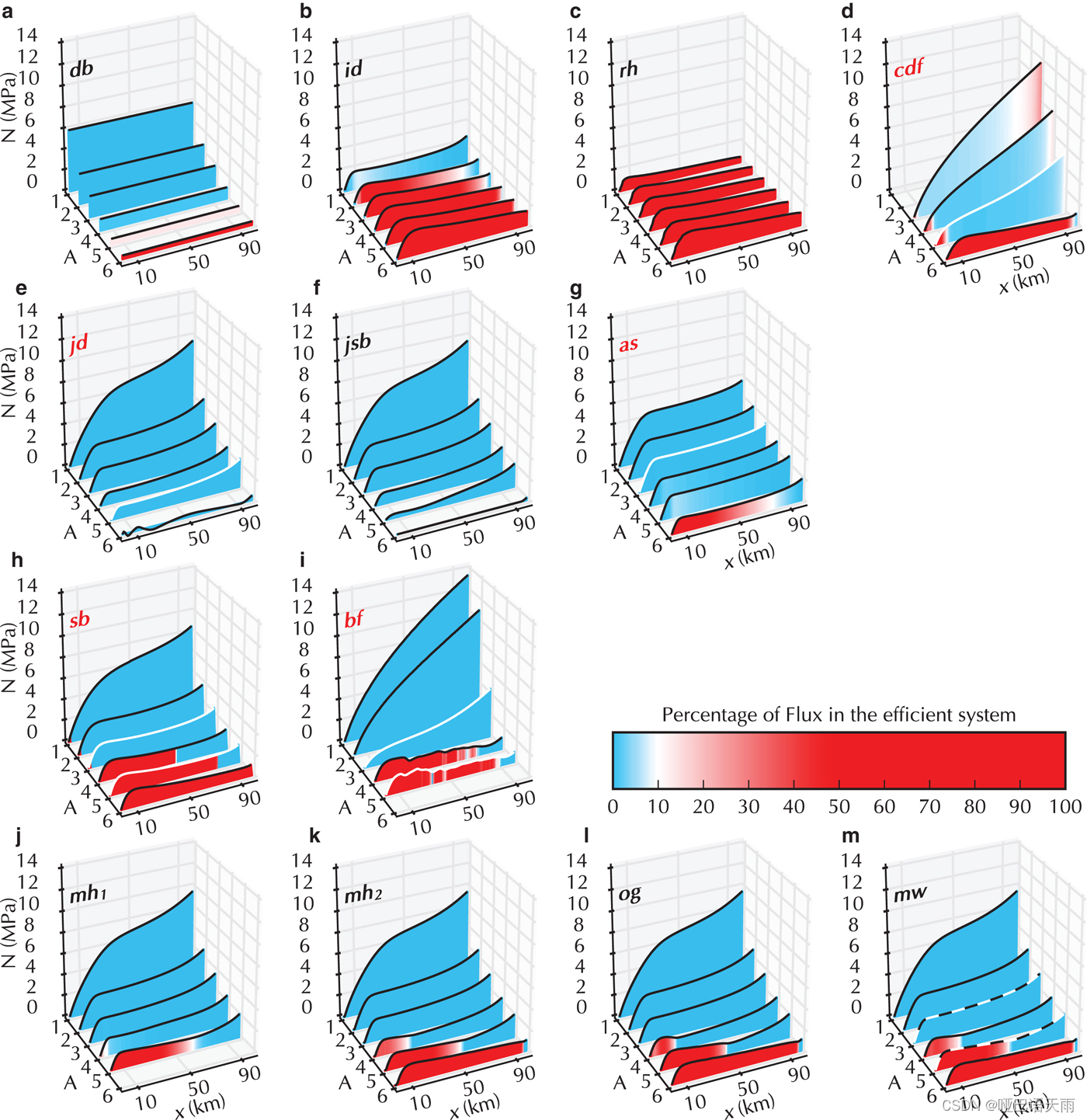
实验B的局部输入效应:Thei mpact of the localised input on effective pressure is relatively small as can be seen in the example of Run B4 shown in below 3j–r. All models that provided results for this Run show a similar response with the amplitude of the difference between A5 and B4 ranging from almost nothing for id to ± 0.5 MPa. In contrast, the lower moulin count Runs B1 and B2 (one and 10, respectively), produce distinctive spatial variability in their outputs (see B1 in below 3a–i.). For those Runs, the largest difference from A5 is upstream of the highest moulin where the effective pressure increases, reaching values at least twice as large as that of A5 at the highest point of the domain. Downstream of the highest moulin, the pressure distributions are much closer to that of Run A5 with a maximum variation of ∼10% of the ice overburden pressure. We attribute this pattern to the limited discharge, provided only by basal melt, upstream of the highest moulin.
